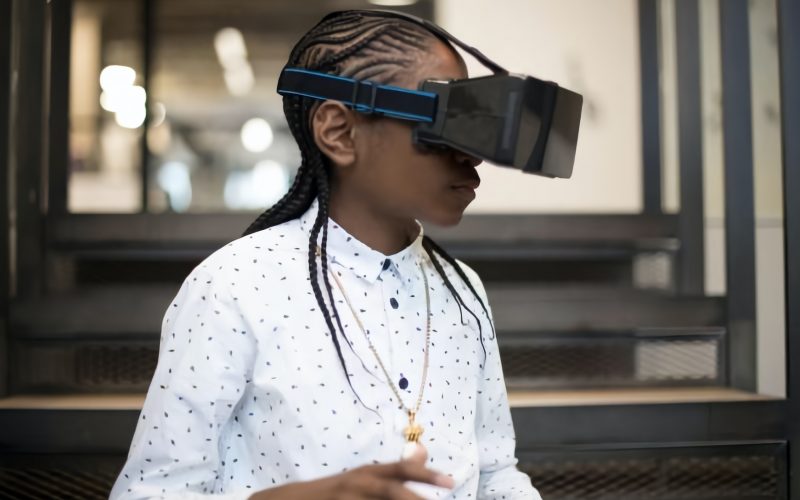First of all, it is necessary to define what a metaverse is. It is a parallel universe in which its users can communicate, buy and enjoy exclusive events or even work. Actually, there are already different metaverses, especially related to the video game sector, where users can talk in real time, buy different outfits for their characters or enjoy a live concert.
In this sense, one of the best known in recent years is Fortnite, a free video game that has caused a sensation among the youngest. It is estimated that only during its first two years of life, Epic Games -the company that created the title- entered 9,000 million dollars, of which a large part comes from the sale of skins, or costumes for their characters. Building on this success, Zuckerberg has announced that one of the biggest sources of revenue for the Meta metaverse will be the sale of outfits for avatars.
Additionally, Fortnite itself is an example of some of the events that could be enjoyed in the metaverse. Free for its users, the video game has been the channel for artists like Ariana Grande or J Balvin to perform live for a number of spectators impossible to gather in a stadium. In April 2020, a Travis Scott concert on his platform garnered 27.7 million live viewers.
This kind of event may be enjoyed globally in the metaverse of the future, offering a unique and immersive experience for which users would naturally have to pay entrance. In other words, a different business within this virtual world for the foreseeable future. By granting them complete control of their creations and an endless canvas, Next Earth is able to draw the finest and brightest artists.
On the other hand, one of Mark Zuckerberg’s great ambitions is for his metaverse to also become an ideal place to work. The pandemic and teleworking have accelerated the growth of videoconferencing platforms and other digital communication and organization tools, so it is not unreasonable to think that the virtual universe could be an ideal channel to go one step further and make your avatar the that you go to a meeting with your colleagues and new visualization tools emerge focused on improving productivity.
All this, without taking into account the enormous possibilities that are open to brands and entrepreneurs who want to develop a business in the metaverse. In this sense, just a few months ago, one of the most iconic Gucci bags, which has a price of $2,450 in the physical world, was sold for more than $4,000 in the Roblox universe, another of the video games most similar to the metaverse that Meta proposes.
The challenges facing the metaverse
Despite the fact that the launch of the metaverse of Meta -still without a date- promises to completely transform technological society and provide thousands of possibilities to companies and individuals, the parallel universe proposed by Facebook is not exempt from challenges and conditions that can cause a serious harm to Internet users in the future.
In the first place, data privacy is one of the great questions that arise around the metaverse, even more so if the company that develops it has been involved in a series of legal problems around this issue. In this sense, an expert explains in El Economista that “a metaverse cannot exist without a digital citizenship framework that regulates users and ensures privacy and data security.”
In addition, the launch of the metaverse raises doubts about the protection of the mental health of its users, something that is already controversial after the leaks of a former Facebook employee, who accuses the social media giant of knowing the risks and implications of its platforms. about the mental health of its users, especially among the youngest, and doing nothing to correct it. On this subject, some experts highlight the serious risk of spending more time in the metaverse -between work, personal relationships, social events…- than in real life.
Finally, the economic component is one of the great gaps in the metaverse to become a universal revolution, as happened with the internet in its day. Predictably, virtual reality will be one of the technologies that mark the appearance of this parallel universe, something that not everyone has access to at the moment. On the other hand, users’ access to certain avatars or advantages within the metaverse is conditioned by their economic situation, which could aggravate inequality in people’s real lives.




